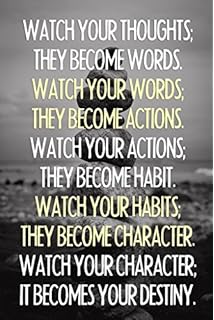 |
| Printing Press in Winsor |
Creatures of Habit
Lately, I've been dealing with a lot of angry people. Sometimes they are angry for good reason, other times it makes such little sense that I can't help but laugh and shake my head.We all get angry over stupid things from time to time, but it's how we deal the anger that really matters. Some cities are now furnished with so-called "Rage Rooms" where people can let loose and destroy things such as plates, toilets, and other household breakables - for a fee, of course. The ones I read about allowed you to bring items in, such as those from an ex, and smash the living hell out of them with a variety of tools. As the owner of the Toronto Rage Room was quoted:
"Society prevents us from expressing that anger outward most of the time, so this Rage Room is a cathartic relief for participants"
While that sounds like a nice, little idea, I'm entirely against it as a continual thing. If you want to go and try out the experience for a one-time thing, go for it. But remember: we are creatures of habit.
 |
| A Type Writer, Just Because |
"We are what we do repeatedly. Greatness then, is not an act, but a habit"Anger is not some explosive, non-degradable material that builds up in our psyche until it is finally ignited. Anger, like anything, is simply a fleeting emotion that will disappear as soon as you're done feeling it. Sure, sometimes we'll get angry all over again by reliving the events of the anger-inducing event, but that, again, will be gone as soon as the feeling passes.
Back to those Rage Rooms: if you were to go to those on a regular basis, breaking things to let off some steam, chances are you'll be more likely to break things when you're in an argument in the future. You'll have successfully trained yourself to react to anger by breaking things. Clearly that's unacceptable. This is why we can't have nice things.
To the point: When under pressure, carried by the emotion of the moment, we're very likely to revert to a more thoughtless, automatic reaction. Be mindful of what you teach yourself to fall back on.
Anger is a Call to Action
 |
| Absynth from Milk |
Compared to the more docile depression or more inward directed anxiety, anger is comparatively easy. If you're feeling depressed, you have to drag yourself out of the blues by some emotional struggle - but it's not a physical/verbal battle. Same goes for anxiety - it's an internal struggle that can't easily be projected outward... that is unless you decide to mask it with anger.
Bottom line: Shouting at someone is easier to do than deal with an internal conflict. Just another case of the easiest path not being the best one.
Emotional Momentum
This is the term I've come to adopt for the lingering effects you'll find from emotions. Imagine you find out that your best friend, Jim, made a pass at your fiancé. You'd probably be pretty pissed. How could he do that?! But oh, wait, she misspoke, it was just a story about some little boy who complimented her. The first would make you angry, and the second would be harmless. Despite that, you'll probably remain angry."But still!" you'll protest when people explain the situation isn't true. Your anger will still linger and you can't just shut it off. You'll look for reasons to justify it - to fuel the anger.
 |
| A Sight of Chatham, Ontario |
Elevated heart rate, sweaty palms, increased breathing rate... what emotion is this? If you're about to give a speech, it could mean you're nervous, or that you're "on" - depending on how much you practiced. If you feel this way after eating or drinking something, you might think you're feeling sick. If someone's shouting at you: hello there, Anger!
Keep this in mind when taking drugs that will affect your physiology. A basic rule for me is to never drink caffeine before doing something that might be nerve wracking.
Emotions are Self-Sustaining
 This applies to both the short- and long-term emotional states. Long-term emotional states can either be called "moods" or, if long enough, "personality traits." Not only do they have momentum, but they we actually tend to find ways to reinforce the emotions with which we are most familiar.
This applies to both the short- and long-term emotional states. Long-term emotional states can either be called "moods" or, if long enough, "personality traits." Not only do they have momentum, but they we actually tend to find ways to reinforce the emotions with which we are most familiar.When you're angry, you want fast music, you want to fight - verbally or physically. When you're depressed, you want to listen to Radiohead and be alone to feel sorry for yourself. If you're happy, you tend to want to dance, laugh, and have fun. It's important to learn how to train yourself to break out of - or into - your desired state.
One more example: when you're pissed and something funny happens, think about how much effort you will put in to stop yourself from "giving in" to the laughter. If you can master letting go of that resistance, you can learn the easier triggers that allow you to change your emotion when you desire, and not when the environment indicates it's time.
We are literally addicted to emotions. All emotion are simply chemical concoctions in the brain. Think about that for a second.
Like any neurological state, "what fires together, wires together." That is to say that the areas of your brain that frequently activate alongside other areas will continue to want to fire together. If you learn to activate calming techniques with whenever you feel anger, the habit will be reinforced over time and it will become second nature.
Put simply: whenever you allow yourself to have an emotional explosion, you're making it more likely to happen in the future.
Shit Happens, and Never Stops Happening
As they say in Buddhist teachings, life is pain. Who am I to disagree with sages? My point with this is that shit will never cease to come your way. The only thing we can do is learn to deal with our emotions when this shit finally gets dumped on top of us. Learn to trust in your ability to recover from it; you've survived everything so far, you can continue to do so.Think about it: if someone is fifty and still getting super upset over the same things that upset them when they're twenty, what does that say? It says they haven't figured out how to cope with ordinary struggles that they've been exposed to for fifty years. You can do better than this schlub.
If anything, we should see these little shit storms as times to practice dealing with more difficult situations in the world. It can always get worse, as they say, so dealing with this will help you for when things actually do get worse.
 |
| This could be your life if everything always went smoothly. |
The Best Stories
Sometimes the best stories come from the worst of times. If things always went smoothly and we always got what we wanted, what would we remember from our lives? It would be a bland, flat landscape with no landmarks.Humans are amazing at comparing two things, but not evaluating things in isolation. The bad times not only let us enjoy the good times more - they let us enjoy the good times at all. Good without bad is just neutral. It just is, nothing more.
You Attract What You Are
Whatever outlook you have on life, it will resonate with those who share a similar outlook. If you see everything as bleak, everyone is out to get you, you aren't going to get along with someone who thinks people are inherently trustworthy and life is uplifting. One of you will likely continually try to convince the other to change their stance, which will be a source of conflict. This is why we tend to find people who reinforce our own world view.
If you find you get angry about a lot of things, or habitually hate everyday frustrations, you're likely to rant about these frustrations and easily find those who seem to agree with you. This then leads you to hang out with them more, and form a circle of friends who will continue to reinforce your perspective - in this case, reinforcing your angry self.
General Health
 |
| He is not a happy camper |
I'm focusing more on your overall mental health - your life satisfaction. The more we allow ourselves to get worked up and angry, the more likely we will resort to that emotional state in the future for broader situations. Smaller things will set us off more than they should, and the cycle will continue. If someone is exploding at you, you have the option of not returning the anger.
The less you allow yourself to get angry, the happier you will be in the long term as a result. It will allow you to get better in every area of your life. One thing you may notice is that when you get angry at someone, they tend to get angry back. If you can control your anger and approach things calmly, they'll be more likely to receive your message. When someone gets angry at you, if you can remain calm, you can bring them down and actually figure out what the issue is. This is sometimes a herculean task of stopping your own emotional momentum, then working on stopping theirs - all while your argument partner is likely egging you on further. Best of luck - it's not an easy skill to develop.
5-5-5-5 Technique
All is not lost. It's difficult to get yourself under control without any direction, but you can hijack your physiology by using certain techniques to slow your heart rate and bring your emotional temperature down. I used to simply take long, deep breaths and hold them at either end of the cycle. My sister taught me a more practical approach that also helps to bring your mind to a more rational, less emotional, perspective.
I call it the "Breathing Box," but you're probably not going to find that in Google. This is how it works: you breath in for 5 seconds, hold it for 5 seconds, exhale for 5 seconds, then pause for 5 seconds before beginning again. Mentally counting the seconds will bring your mind to a more rational perspective, while the slower, controlled breathing will help lower your heart rate. Both, in combination, will do well to bring you back under your wiser faculties in moments of stress.
 |
| She's on board with all this |
Anger vs Grudges
I'm going to close off by making a distinction I should have made earlier, so I apologize. Anger is a fleeting emotion that happens when something makes you mad. A grudge, however, is long-term anger that's generated from a particular target or source. Every time you think of that source, you tend to feel your blood run a little hotter. For your own happiness and others, I encourage you to ruminate on the following quote whenever you find yourself getting sucked into the habit of hating:"Holding on to anger is like drinking poison and expecting the other person to die."*One guy said he hated Dodge because they had Miranda Lambert in their commercial.
**Catharsis the process of releasing, and thereby providing relief from, strong or repressed emotions. It can be through spoken therapy or from breaking shit. Some forms are clearly better than others.












No comments:
Post a Comment